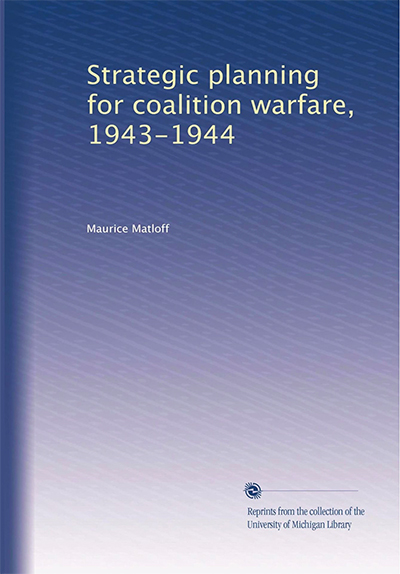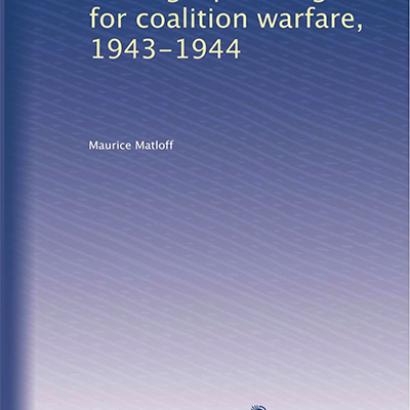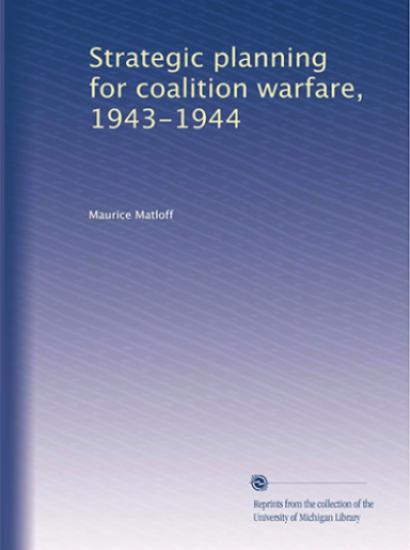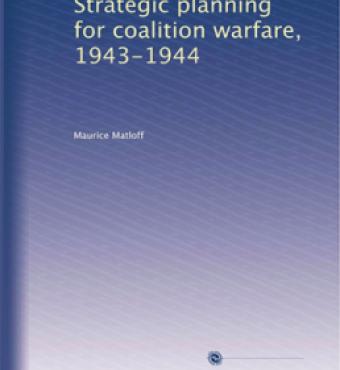- History
In the 1950s and 1960s, the Pentagon published its official history of the U.S. Army in World War Two under the general editorship of Kent Greenfield, of which the sixth volume was Maurice Matloff’s masterful Strategic Planning for Coalition Warfare 1943-1944. In his Foreword written in April 1958, Major General R. W. Stephens, who had the splendid title of “Chief of Military History,” wrote, “Within a generation the attitude and policy of the United States toward alliances have undergone a revolutionary reversal. The nation has passed from its traditional suspicion and fear of ‘entangling alliances’; to a policy that heavily stakes its security and interests on the cooperation of other powers.” Matloff, wrote Stephens, described “the climax of [the U.S.’] most intensive experience with coalition strategy,” namely the United States alliance with Great Britain and the Soviet Union.
How General George C. Marshall and the War Department planned, negotiated, and implemented American grand strategy between the Casablanca Conference of January 1943 through to the Quebec Conference of September 1944 is summed up by Matloff in only 540 pages, in a masterpiece of concision and tight analysis. The timing and planning of Operation Overlord was of course the central theme of the work, but it also covered American strategy in all of the other theatres of the war. A massive folded wall map of Asia was included, and extremely useful appendices of statistics.
What makes the book a classic of military history, however, is the clarity with which Matloff put the Pentagon’s point of view, and the way he managed to boil down complex technical and logistical issues to their bare essentials. The arguments in the Combined Chiefs of Staff Committee and between Churchill and Roosevelt are set out in a highly readable but admirably objective manner.
In his Epilogue, Matloff wrote that after the U.S. Army was safely ashore after D-Day, “The war became, for [U.S. Army Chief of Staff General George C.] Marshall and his staff, essentially a matter of logistics and tactics … But to Churchill, warily watching the swift Soviet advance into Poland and the Balkans, the war had become more than ever a contest for great political stakes, and he wished Western Allied strength diverted to fill the vacuum left by the retreating Germans, thereby forestalling the Soviet surge.” Had Roosevelt supported Churchill, Matloff stated, Marshall would have been forced not to concentrate on ending the war as soon as possible but instead to pursue a better political outcome. “But the President would not,” Matloff pithily writes of the adoption of this change of strategic emphasis, “and the Prime Minister by himself could not.”
















